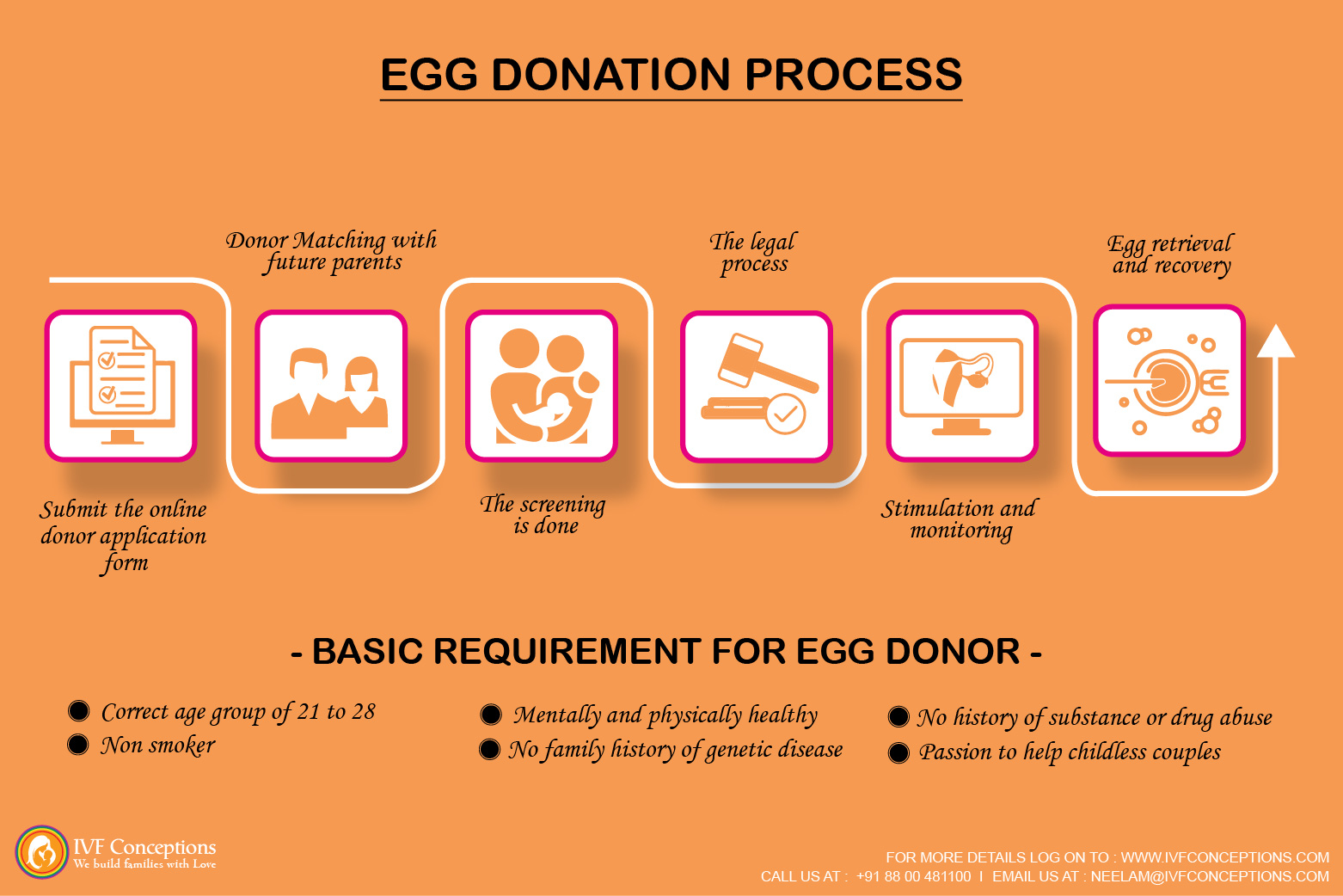Whose Egg Is Used in Surrogacy? Understanding Options.
Starting a family can be a big decision. The choice of whose egg is used in surrogacy can change everything. It affects not just the plans but also the feelings of everyone involved.
Surrogacy is a hope for those facing fertility issues. But, many wonder about the options they have. We’ll look at gestational and traditional surrogacy. We’ll see how eggs can come from the intended mother, a donor, or the surrogate herself.
Knowing these choices is key for those thinking about surrogacy. Each option has its own set of implications. It’s important to understand these before starting this journey.
- Book an online appointment: Get a free online consultation.
- Call\W:+91-8800481100 Email:neelam@ivfconceptions.com
Key Takeaways
- Gestational surrogacy typically involves the intended parents and may include an egg donor.
- Traditional surrogacy is less common in the U.S. due to significant legal and emotional risks.
- Most intended parents prefer to use their own eggs, but donor eggs can offer legal and emotional advantages.
- Using the surrogate’s eggs makes her genetically related to the child, complicating legal and emotional dynamics.
- Surrogacy arrangements require independent counseling and legal advice for all parties involved.
- Patients must navigate varied costs and risks associated with surrogacy, which are not subsidized by Medicare.
Additional Resources to Read:
Is Surrogacy Legal in Mexico? Know the Facts
IVF vs IUI: Comparing Fertility Treatment Options
Introduction to Surrogacy and Egg Sources
Surrogacy is a complex arrangement where a woman carries and delivers a child for another person or couple. This surrogacy introduction leads to different egg source options.
These options greatly affect the surrogacy process. Each choice made in this journey changes the relationship between the intended parents and the surrogate, especially during the pregnancy.
In the United States, gestational surrogacy is the most common type. It involves using in vitro fertilization (IVF). Here, the egg comes from the intended mother or a donor, and the embryo is implanted into the surrogate.
This is different from traditional surrogacy, where the surrogate uses her own eggs. The choice between these types affects the emotional and legal aspects.
It’s important to understand these aspects for those considering this life-changing process, as explained by the surrogacy process explained framework.
| Type of Surrogacy | Egg Source | Common Characteristics |
| Gestational Surrogacy | Intended Mother’s Egg or Donor Egg | Most common type in the USA, involves IVF |
| Traditional Surrogacy | Surrogate’s Own Egg | Less common, involves insemination with intended father’s sperm |
The path chosen in surrogacy involves many aspects. These include medical, emotional, and legal considerations. They form the basis for successful outcomes.
Whose Egg Is Used in Surrogacy?
It’s important to know whose egg is used in surrogacy. This helps us understand the difference between traditional and gestational surrogacy. Each type has its own legal, emotional, and biological aspects that affect the process.

Types of Surrogacy: Traditional vs. Gestational
In traditional surrogacy, the surrogate uses her own eggs. This means she has a biological connection to the child. However, this method is less common today due to its ethical, emotional, and legal challenges.
Gestational surrogacy, on the other hand, is more common. It uses embryos made from the intended mother’s eggs or donor eggs. This way, the surrogate has no genetic link to the child, making it simpler for establishing parental rights.
Importance of Egg Source in Surrogacy
The egg source importance is key in surrogacy. Many intended parents choose to use the intended mother’s eggs for a stronger emotional bond. But, donor eggs might be used for reasons like advanced age or health concerns.
For same-sex couples or single parents, donor eggs are often necessary. The rise in gestational surrogacy is also due to its legal benefits. It offers intended parents peace of mind during the journey.
| Type of Surrogacy | Egg Source | Biological Connection | Commonality |
| Traditional Surrogacy | Surrogate’s Eggs | Surrogate is biological mother | Rarely practiced |
| Gestational Surrogacy | Intended Mother’s or Donor’s Eggs | No biological connection to the surrogate | Most commonly used |
Using the Intended Mother’s Eggs
Using the intended mother’s eggs in gestational surrogacy has many benefits. It helps intended parents feel a closer bond with their child. This biological connection can make the journey more meaningful.
Using the intended mother’s eggs also affects other parts of the surrogacy experience. It’s not just about feeling emotionally connected.
Benefits of Using the Intended Mother’s Eggs
There are several advantages to using the intended mother’s eggs:

- Biological Connection: The child shares genetic ties with the intended mother. This creates a strong emotional bond for both.
- Customization: Intended parents can choose traits they want in their child. This is based on the quality of the eggs.
- Familiarity: Using their own genetic material can make parents feel more comfortable. It reduces worries about donor eggs.
The Process of Using the Intended Mother’s Eggs
The IVF process starts with the intended mother taking fertility medication. This helps her body prepare for egg retrieval.
When the eggs are ready, they are collected in a minimally invasive way. The eggs are then fertilized with sperm from the intended father or a donor. This creates embryos.
Once the embryos are viable, they are transferred into the surrogate’s uterus. This completes the gestational surrogacy process.
Using Donor Eggs for Surrogacy
Egg donation surrogacy is a common choice for those wanting to grow their families. It’s important to know when it’s the right choice. This helps parents make the best decision for their family.
Who Should Consider Donor Eggs?
Donor eggs are a good option for many people. This includes:
- Women who are older and having trouble getting pregnant.
- People who have tried IVF before but didn’t succeed.
- Those whose ovaries are not working well.
- Same-sex female couples wanting a biological child.
- Single women who want to be mothers without a partner.
Every year, over 30,000 people use donor eggs for fertility treatments. This method has high success rates. It helps people become parents and creates strong bonds between them and their children, even if they’re not genetically related.
The Procedure for Using Donor Eggs
The process of using donor eggs is similar to using the intended mother’s eggs, but with some differences. First, a donor is found through an agency. This ensures they are a good match.
- Finding a donor that matches the intended parents’ preferences.
- Getting the donor’s eggs through a simple procedure.
- Using the intended father’s sperm to fertilize the eggs.
- Transferring the fertilized eggs to the surrogate, who carries the baby.
This method means the surrogate isn’t genetically related to the baby. It’s all about the donor’s genes. The whole process is covered by legal agreements. This makes sure everyone knows their rights and what to expect

Using the Surrogate’s Eggs
Traditional surrogacy means the surrogate uses her own eggs to conceive. This creates a genetic link between her and the child. However, this method is less common today due to legal challenges traditional surrogacy faces. Agencies often highlight the emotional and legal complexities of this approach.
Overview of Traditional Surrogacy
The traditional surrogacy method makes the surrogate the biological mother of the child. This can make custody and parental rights after birth very complicated. It’s a complex situation that can be emotionally and legally challenging for all involved.
Legal and Emotional Considerations
The bond between the surrogate and the child she carries is a big emotional issue. It can raise questions about attachment and future relationships with the intended parents. Legal issues are also a big concern, as the surrogate is often seen as the child’s legal mother.
It’s crucial for those considering traditional surrogacy to talk to legal experts in family law. This way, they can address potential legal problems early on. Many people now prefer gestational surrogacy because it’s clearer and simpler legally. Understanding the differences between these options is key to making a well-informed decision.
Establishing Parental Rights in Surrogacy Agreements
Parental rights in surrogacy are solidified through detailed agreements. These contracts outline each party’s expectations and duties, offering legal protection. It’s crucial to work with a legal expert in reproductive law to navigate these complexities.
Getting a pre-birth parentage order in states like California and Colorado is key. These orders confirm the intended parents’ rights before the baby is born. This step is vital to avoid future disputes over who the parents are.
| State | Surrogacy Status | Parental Rights Mechanism |
| Alabama | Permitted | No genetic link required |
| Alaska | Accepted | Pre-birth parentage orders for genetic parents |
| Arizona | Prohibited | Common post-birth adoption |
| Arkansas | Permitted | Pre-birth parentage orders for genetic parents |
| California | Highly favorable | Pre-birth and post-birth orders available |
| Colorado | Permitted | Pre-birth parentage orders issued |
| Connecticut | Permitted | Parentage judgments established |
| Delaware | Permitted | Pre-birth orders for any Intended Parent |
Choosing a Surrogate Mother
Finding the right surrogate mother is key to a successful surrogacy journey. It’s important to consider many factors to ensure a good match. The selection process should meet the criteria set by reputable agencies and intended parents.

Criteria for Selecting the Right Surrogate
Several criteria are important when choosing a surrogate mother. Understanding and prioritizing these can make the surrogacy journey smoother.
- Age: Surrogates are usually between 21 and 40 years old. This age range balances youth with the experience needed for a safe pregnancy.
- Health: A detailed medical history is reviewed to ensure the surrogate’s health supports a successful pregnancy.
- Previous Pregnancy Experience: Past surrogacy or pregnancy success gives intended parents more confidence.
- Emotional Readiness: The surrogate’s emotional capacity to hand over the baby post-birth is crucial for bonding.
- Lifestyle: A healthy, supportive lifestyle is important for a favorable pregnancy environment.
- Willingness to Transfer: Understanding expectations regarding contact after delivery is important for setting boundaries.
Surrogacy Agency Requirements
Surrogacy agencies have strict requirements to ensure candidates are suitable. The surrogacy screening process includes several evaluations and legal protocols:
| Requirement | Description |
| Medical Exam | Comprehensive health checks to validate the surrogate’s fitness for pregnancy. |
| Psychological Evaluation | Professional assessments to ensure emotional stability and readiness for the surrogacy journey. |
| Legal Contracts | Detailed agreements outlining roles, expectations, and protections for all parties. |
| Financial Stability | Verification of the surrogate’s financial background to ensure security during the process. |
These requirements are in place to protect everyone involved and increase the chances of a successful outcome. The right surrogate mother, chosen through a careful process, is essential for the intended parents’ hopes and dreams. Each surrogacy journey is unique, requiring personalized attention and support from the agency and medical professionals.
Surrogacy Cost Breakdown
Knowing the cost of surrogacy is key for those planning to become parents. A detailed cost breakdown helps you prepare for the expenses. These costs include medical bills, agency fees, legal fees, and the surrogate’s compensation.
Common Costs Associated with Surrogacy
Surrogacy comes with various financial aspects to consider:
- Surrogate Compensation: Compensation usually ranges from $35,000 to $70,000.
- Agency Fees: Agency services can cost between $15,000 and $50,000.
- Legal Fees: Legal costs range from $6,000 to $10,000.
- Medical Costs: Fertility treatments can cost from $7,000 to $50,000.
- Insurance: Insurance for the surrogate can be $10,000 to $30,000.
- Embryo Creation: IVF and related procedures cost between $20,000 and $30,000.
- Egg Donation: Egg donation fees are from $20,000 to $30,000.
The total cost for surrogacy can be between $125,000 and $175,000.
Funding Your Surrogacy Journey

Finding money for surrogacy can be tough. There are many ways to fund it, including:
- Personal Savings: Many use their savings for initial costs.
- Loans and Grants: Loans and grants for reproductive health are available.
- Employer Benefits: Some employers offer fertility benefits.
- Fundraising: Fundraising can help gather support from loved ones.
Exploring your funding options can help manage the financial side of surrogacy. Knowing the costs helps you make better decisions.
Additional Resources to Read:
Understanding Surrogate Age Requirements
Cheapest Countries for Gay Surrogacy
Conclusion
Your journey through surrogacy can be very rewarding. But, it needs careful thought about the options and their effects. Knowing the differences in using the intended mother’s eggs, donor eggs, or the surrogate’s eggs is key. Each choice has its own emotional and legal sides to consider.
As you explore surrogacy, remember that knowing a lot helps. Learning about surrogacy lets you make smart choices. From picking the right egg source to dealing with legal stuff and understanding the gestational process, every decision is important for your family’s future.
Surrogacy is a big step to becoming a parent. Whether you choose traditional or gestational surrogacy, being informed helps you feel confident and clear. Take the chance to look at all your options as you start this important and changing journey.
If you’d like to learn more about IVF, Egg Donation, or surrogacy services globally, check out the rest of our website at Georgia Surrogacy Agency. We offer legally secure and affordable surrogacy consulting services for FREE.
Get in touch for FREE SURROGACY CONSULTING:
Mobile: +91-8800481100 ( WhatsApp, Line, Viber)
Email: neelam@ivfconceptions.com

FAQ
Whose egg is used in surrogacy?
Eggs in surrogacy can come from the intended mother, a donor, or the surrogate herself. The choice depends on health, emotional needs, and legal issues.
What is the difference between traditional and gestational surrogacy?
Traditional surrogacy uses the surrogate’s eggs, making her the child’s biological mother. Gestational surrogacy uses eggs from the intended mother or a donor, with no genetic link to the surrogate.
What are the benefits of using the intended mother’s eggs?
Using the intended mother’s eggs keeps a biological link to the child. This can strengthen emotional bonds and the pregnancy experience.
Who should consider using donor eggs?
Donor eggs are often chosen by those facing health issues with their eggs, are older, or are single males or same-sex couples.
What are some legal aspects of surrogacy?
Surrogacy laws vary by state. They cover parental rights, the need for detailed agreements, and handling issues from traditional surrogacy.
What criteria should you consider when choosing a surrogate mother?
Look at age, health, pregnancy history, and emotional readiness. Agencies check these factors through detailed screenings.
How much does surrogacy typically cost?
Surrogacy costs range from $80,000 to over $120,000. This includes medical, agency, legal, and surrogate fees. Be ready for both expected and unexpected costs.
What are the surrogacy agency requirements?
Agencies require medical checks, psychological tests, legal contracts, and financial stability for surrogates.
Source Links
- https://www.americansurrogacy.com/surrogate/do-surrogates-use-their-eggs – Do Surrogates Use Their Own Eggs?
- https://www.varta.org.au/surrogacy/surrogacy-explained – Surrogacy explained | VARTA
- https://www.fertilitysourcecompanies.com/blog/what-is-a-surrogate-mother-or-a-gestational-carrier – What Is Traditional Surrogacy and Gestational Surrogacy? – The SOURCE Surrogacy Agency Blog |Becoming a Surrogate Mother, Surrogacy Program The SOURCE Surrogacy Agency Blog | Becoming a Surrogate Mother, Surrogacy Program
- https://www.ncbi.nlm.nih.gov/pmc/articles/PMC6262674/ – Insight into Different Aspects of Surrogacy Practices
- https://en.wikipedia.org/wiki/Surrogacy – Surrogacy
- https://surrogatesteps.com/whose-egg-is-used-in-surrogacy/ – Whose egg is used in surrogacy? | Surrogate Steps®
- https://health.ny.gov/community/pregnancy/surrogacy/gestational_surrogacy_fact_sheet.htm – Gestational Surrogacy Fact Sheet
- https://www.webmd.com/infertility-and-reproduction/using-surrogate-mother – What Is Surrogacy and How Does It Work?

Highly esteemed, authoritative, and trusted professional with a 14-year of experience in international surrogacy. Advocate for Secure, Legal, and Affordable International Surrogacy.
Neelam Chhagani, MA (Counselling Psychology) and Holistic Infertility and Third-Party Reproduction Consultant.
Member of European Fertility Society, Best Surrogacy Blogger of 2020, with 300 dedicated blogs, and top contributor on Quora for Surrogacy.


Add Your Comment